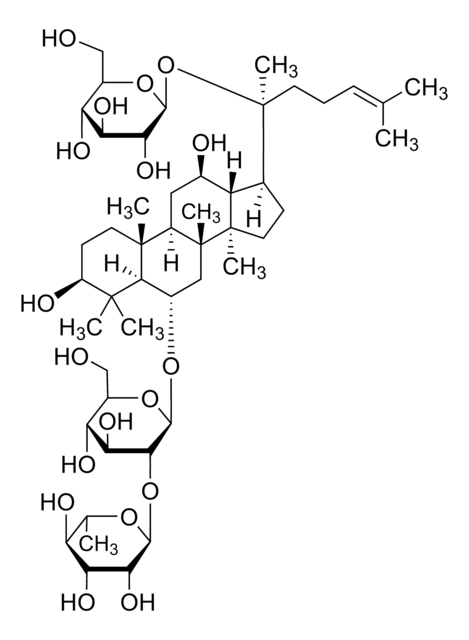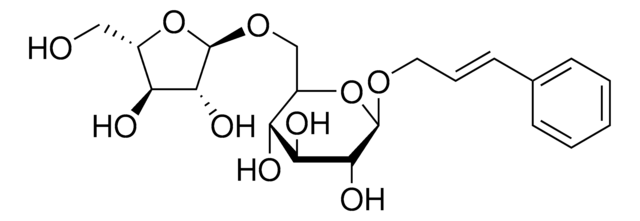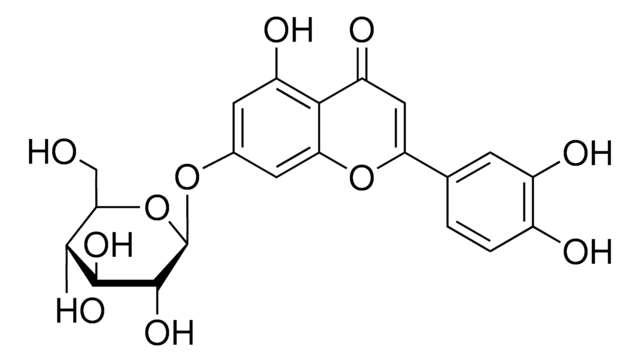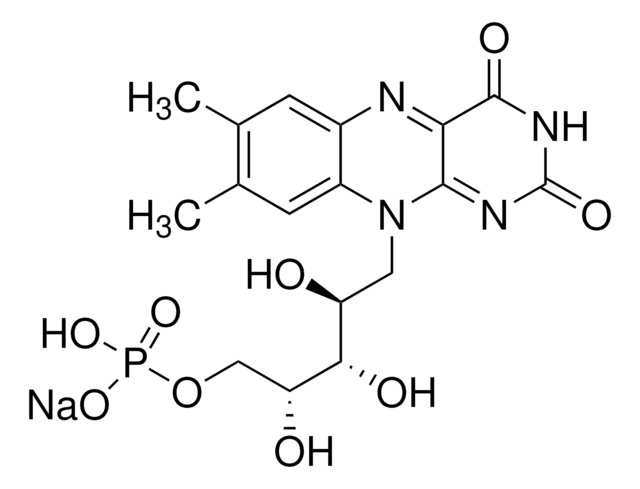03000590
Ginsenoside Re
primary reference standard
Synonym(s):
(3β,6α,12β)-20-(β-D-Glucopyranosyloxy)-3,12-dihydroxydammar-24-en-6-yl 2-O-(6-deoxy-α-L-mannopyranosyl)-β-D-glucopyranoside, Chikusetsusaponin IVc, Ginsenoside B2, NSC 308877, Panaxoside Re, Sanchinoside Re
About This Item
Recommended Products
grade
primary reference standard
shelf life
limited shelf life, expiry date on the label
manufacturer/tradename
HWI
application(s)
food and beverages
SMILES string
CC1O[C@@H](O[C@@H]2[C@@H](O)[C@H](O)[C@@H](CO)O[C@H]2O[C@H]3C[C@]4(C)[C@H](C[C@@H](O)[C@@H]5[C@H](CC[C@@]45C)[C@](C)(CC\C=C(/C)C)O[C@@H]6O[C@H](CO)[C@@H](O)[C@H](O)[C@H]6O)[C@@]7(C)CC[C@H](O)C(C)(C)[C@H]37)[C@H](O)[C@H](O)[C@H]1O
InChI
1S/C48H82O18/c1-21(2)11-10-14-48(9,66-42-38(60)35(57)32(54)26(19-49)63-42)23-12-16-46(7)30(23)24(51)17-28-45(6)15-13-29(52)44(4,5)40(45)25(18-47(28,46)8)62-43-39(36(58)33(55)27(20-50)64-43)65-41-37(59)34(56)31(53)22(3)61-41/h11,22-43,49-60H,10,12-20H2,1-9H3/t22-,23-,24+,25-,26+,27+,28?,29-,30+,31-,32+,33+,34+,35?,36-,37+,38+,39+,40-,41-,42-,43+,45+,46+,47+,48-/m0/s1
InChI key
PWAOOJDMFUQOKB-QVPADXGFSA-N
Looking for similar products? Visit Product Comparison Guide
Related Categories
General description
Exact content by quantitative NMR can be found on the certificate.
Application
Other Notes
Signal Word
Warning
Hazard Statements
Precautionary Statements
Hazard Classifications
Acute Tox. 4 Oral
Storage Class Code
11 - Combustible Solids
WGK
WGK 3
Flash Point(F)
Not applicable
Flash Point(C)
Not applicable
Choose from one of the most recent versions:
Certificates of Analysis (COA)
Don't see the Right Version?
If you require a particular version, you can look up a specific certificate by the Lot or Batch number.
Already Own This Product?
Find documentation for the products that you have recently purchased in the Document Library.
Customers Also Viewed
Articles
Optimize HPLC method for ginsenoside separation using a mixture, applying it to American Ginseng root, with conditions and chromatograms shown.
Our team of scientists has experience in all areas of research including Life Science, Material Science, Chemical Synthesis, Chromatography, Analytical and many others.
Contact Technical Service













